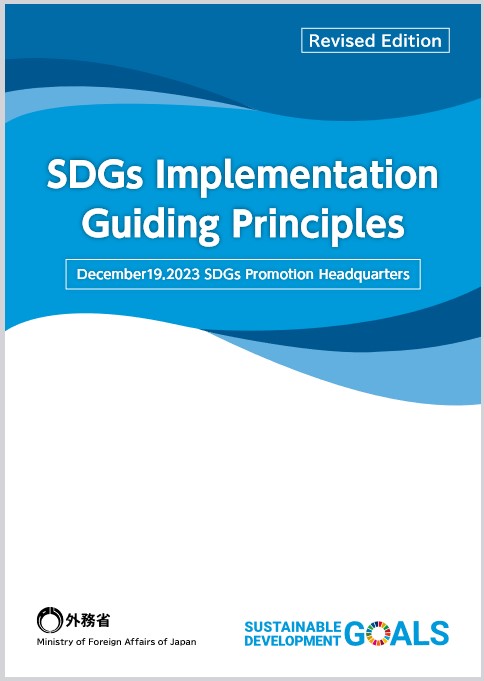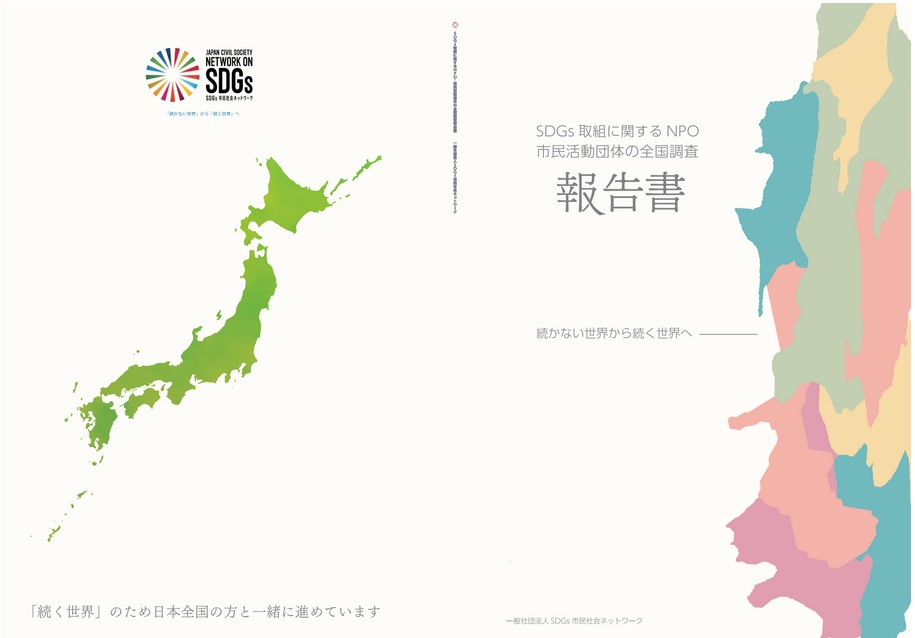How Do Japanese Non-profit Organizations (NPOs) Feel About the SDGs? InsightsEssays: Civil Society in Japan
Posted on June 26, 2024
Japan NPO Center (JNPOC) has a news & commentary site called NPO CROSS that discusses the role of NPOs/NGOs and civil society as well as social issues in Japan and abroad. We post articles contributed by various stakeholders, including NPOs, foundations, corporations, and volunteer writers.
For this JNPOC’s English site, we select some translated articles from NPO CROSS to introduce to our English-speaking readers.
How Do Japanese Non-profit Organizations (NPOs) Feel About the SDGs?

Last year, the Japanese government (Ministry of Foreign Affairs) revised its SDG Implementation Guidelines for the first time in four years. 2023 marked the midpoint to 2030’s deadline, drawing much attention to the progress made so far. However, the international community faces serious crises, such as the spread of COVID-19, the military invasion of Ukraine, and escalating tensions in the Middle East, all of which present significant challenges to achieving the SDGs. The revised edition recognizes the slow progress and stresses the importance of diverse stakeholders’ commitment and the government’s determination to achieve these goals.
What do the new guidelines say about civil society? The revised edition states: “Civil society, including NGOs, is expanding its presence in humanitarian assistance and other development cooperation around the world” and “is expected to be a flag-bearer for change and transformation by encouraging the participation of people… (and) by working in solidarity with various actors.” This was stated in a newly appended document laying out expectations toward the role of civil society.
In light of these expectations, how do Japanese non-profit organizations (NPOs) feel about the SDGs in their practice?
The Japan Civil Society Network on SDGs (SDGs Japan) conducted a nationwide survey to identify Japanese NPOs’ efforts regarding the SDGs and released the report in April 2024. The survey, conducted via NPO support organizations across 47 prefectures, received responses from 1,181 organizations, ranging from grassroots groups to larger organizations.
While 56% of all organizations reported making some efforts toward the SDGs, more than 40% also stated that “their SDG efforts tend to scratch the surface.” The survey report also reveals views on the importance of contributing to the SDGs as well as perceived challenges that lead organizations to forgo SDGs efforts.
Reasons given by organizations not working on the SDGs include “Sustaining our own groundwork is what matters,” “concerns about greenwashing,” “aspects of business exploitation,” and “there’s no explicit mention of diverse sexualities [in SDGs).” These critical viewpoints that are invaluable in accelerating efforts to achieve the SDGs.
The report includes analytical comments from the committee members involved in the research design. The comments are an excellent account of how each member interpreted the survey results from their unique standpoints, and I highly encourage everyone to read the report.
About the Report on a National Survey of NPOs and CSOs on SDG Initiatives (in Japanese)

A nationwide online survey conducted in 2023 by the Japan Civil Society Network on SDGs (supported by Central Community Chest of Japan’s Community Impact Fund) examined the current status of SDG-related activities among NPOs and CSOs in Japan. While most SDG surveys target corporations, local governments, and the general public, this is the first nationwide SDG survey targeting NPOs and CSOs in Japan. The findings indicate that NPOs and civic groups are tackling the challenge of building sustainable local communities in all 17 SDG target areas through diverse initiatives leveraging their unique characteristics. However, some organizations candidly shared that they were not keen to associate their activities with the “SDGs” label.
Original text by Eiji Ueda (JNPOC’s Deputy Managing Director) originally posted on May 30, 2024; translated by JNPOC.
Recent Articles
- “Neither isolated, nor alone”: Insights from the frontlines of women’s end-of-life support
- Changing society from within a 15-minute walk
- How are NPO support centers balancing staff protection and abusive behavior?: Strategies for managing customer harassment
- A view on realignment in U.S. private philanthropy
- Adapting global goals to local action: The SAVE JAPAN Project approach
- JNPOC Launches Grant Project in Partnership with ORIX Life Insurance